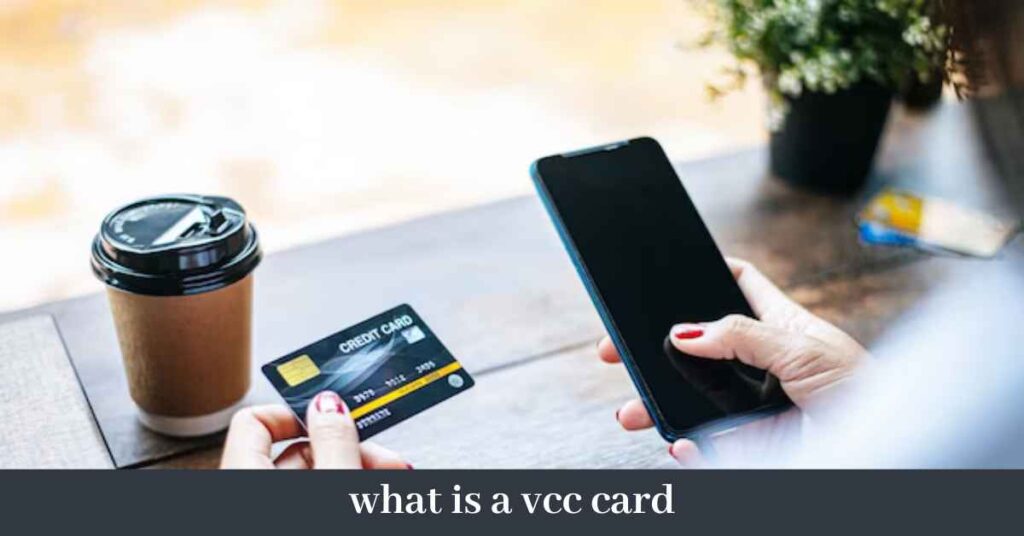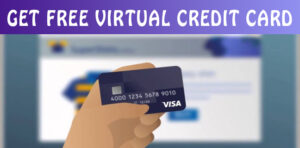Have you ever wondered what a Vcc card is? If so, you’re in the right place! In this article, we will explore the concept of a Vcc card and unravel its mysteries. Whether you’re new to the world of online transactions or simply curious about this increasingly popular payment method, we’ve got you covered. So, let’s dive in and discover what a Vcc card is all about!
What Is a VCC Card
Definition of a VCC Card
A VCC card, also known as a Virtual Credit Card, is a digital form of payment that functions similarly to a traditional credit card. It is designed to provide a secure and convenient way to make online transactions without having to use your actual credit or debit card details. VCC cards are issued by various financial institutions and can be linked to your bank account or prepaid card.
How VCC Cards Work
VCC cards work by generating a unique set of credit card details that can be used for online purchases. When you initiate a payment using a VCC card, it generates a one-time-use card number, expiration date, and CVV code. These details can only be used for that specific transaction, ensuring that your actual credit card information remains secure.
Once the transaction is complete, the VCC card becomes inactive, and the generated card details cannot be used again. This provides an extra layer of protection against unauthorized transactions and potential fraud.
Benefits of Using VCC Cards
Using a VCC card offers several advantages, making it an increasingly popular payment option for online shoppers. Here are some key benefits of using VCC cards:
- Enhanced Security: One of the primary benefits of VCC cards is the added security they provide. Since the generated card details are only valid for a single transaction, the risk of your card information being compromised or misused is significantly reduced.
- Protection Against Fraud: VCC cards help safeguard your actual credit card information from fraudsters and identity thieves. By using a temporary set of card details for each transaction, you minimize the chances of unauthorized access to your financial data.
- Convenience: VCC cards offer a convenient way to make online purchases without having to enter your actual credit card details every time. With just a few clicks, you can generate a unique set of card details and complete your transactions securely.
- Control of Spending: VCC cards can also help you manage your spending effectively. By setting spending limits or linking the card to a dedicated account, you have better control over your online shopping expenses.
- International Payments: Some VCC card providers offer the ability to make international payments without incurring foreign exchange fees or other additional charges. This can be especially beneficial for travelers or individuals who frequently shop on international websites.
Types of VCC Cards
There are two main types of VCC cards available:
- Bank-issued VCC Cards: These VCC cards are directly linked to your bank account, allowing you to use funds from your account for online transactions. Bank-issued VCC cards often come with additional features and benefits provided by the issuing bank.
- Prepaid VCC Cards: Prepaid VCC cards are not linked to your bank account but are instead preloaded with a specific amount of money. You can top up these cards with funds and use them for online purchases. Prepaid VCC cards offer the advantage of limiting your spending to the amount loaded onto the card.
How to Get a VCC Card
Getting a VCC card is a straightforward process. Here’s how you can obtain one:
- Choose a Provider: Research and select a reputable VCC card provider that suits your needs and preferences. Look for providers that offer strong security measures and competitive fees.
- Provide Personal Information: Fill out the necessary application form, which typically requires standard personal information, such as your name, address, and contact details. Some providers may also require identity verification.
- Link Your Bank Account or Prepaid Card: Depending on the type of VCC card you choose, you may need to link it to either your bank account or a prepaid card. Follow the provider’s instructions to complete this process.
- Generate Card Details: Once your VCC card is set up, you can generate the necessary card details for your online transactions. Usually, this involves logging into your VCC card account and following the prompts to create a unique set of card details.
Popular VCC Card Providers
Several established financial institutions and online payment platforms offer VCC card services. Here are some popular VCC card providers:
- Entropay: Entropay is known for offering a widely accepted virtual Visa card that can be used across various online platforms.
- PayPal: The popular online payment platform PayPal also offers a virtual Mastercard service, allowing users to make secure online transactions without divulging their actual card details.
- Revolut: Revolut offers virtual Visa cards as part of their range of digital banking services, enabling users to easily manage their finances and make online purchases.
- Neteller: Neteller provides virtual prepaid Mastercard solutions for online shoppers, offering a safe and convenient way to make transactions across different websites.
Please note that availability and specific features may vary depending on your geographical location and the terms and conditions of each provider.
Limitations and Risks of VCC Cards
While VCC cards offer numerous benefits, it’s important to be aware of their limitations and associated risks. Here are a few things to consider:
- Limited Acceptance: Not all online merchants accept VCC cards as a form of payment. Before making any purchases, ensure that the website or platform accepts your chosen VCC card provider.
- Expiration Dates: VCC cards have expiration dates, and any unused balance on the card typically cannot be refunded or transferred to another card. It’s essential to monitor the expiration date to avoid potential loss of funds.
- Transaction Fees: Some VCC card providers may charge fees for certain transactions, such as international payments or currency conversions. Familiarize yourself with the fee structure of your chosen provider to avoid unexpected charges.
- Refunds and Disputes: In the event of a dispute or the need for a refund, the process may be more complicated with a VCC card compared to a traditional credit card. Review the provider’s policies regarding disputes and refunds to understand the procedure.
Tips for Safely Using VCC Cards
To ensure the safe and effective use of VCC cards, here are some tips to keep in mind:
- Choose a Trusted Provider: Select a reputable and well-established VCC card provider that emphasizes strong security measures and customer support.
- Keep Track of Expiry Dates: Regularly monitor the expiration dates of your VCC cards and ensure that any unused funds are utilized before the card expires.
- Avoid Sharing Card Details: Do not share your VCC card details, including generated card numbers, CVV codes, and expiration dates, with anyone or on unsecured platforms.
- Review Transaction History: Regularly review your VCC card transaction history to identify any unauthorized charges or suspicious activities. Report any discrepancies promptly to your VCC card provider.
- Use Strong Passwords: Ensure that you use strong, unique passwords for your VCC card account to prevent unauthorized access.
- Regularly Update Software: Keep your devices, including computers and smartphones, updated with the latest software and security patches to protect against potential vulnerabilities.
Alternatives to VCC Cards
While VCC cards offer numerous benefits, there are alternative payment methods you can consider for online transactions:
- Digital Wallets: Digital wallets, like Apple Pay, Google Pay, or Samsung Pay, provide a secure way to complete online transactions using your smartphone or smartwatch. These wallets often utilize tokenization technology to protect your card information.
- Prepaid Cards: Similar to prepaid VCC cards, prepaid cards offered by banks or financial institutions allow you to load funds onto the card and use them for online purchases. They provide the added advantage of being widely accepted and can sometimes be used for offline transactions as well.
- Cryptocurrencies: Cryptocurrencies, such as Bitcoin, have gained popularity as a decentralized form of payment. Some online merchants accept cryptocurrencies as a payment option, offering an additional level of privacy and security.
Conclusion
VCC cards are a convenient and secure way to make online payments without exposing your actual credit card details. By generating unique card details for each transaction, VCC cards provide enhanced protection against fraud and unauthorized access to your financial information. However, it’s important to be aware of the limitations and risks associated with VCC cards and take necessary precautions to ensure their safe usage. Consider the alternatives mentioned and choose the payment method that best suits your needs and preferences.







